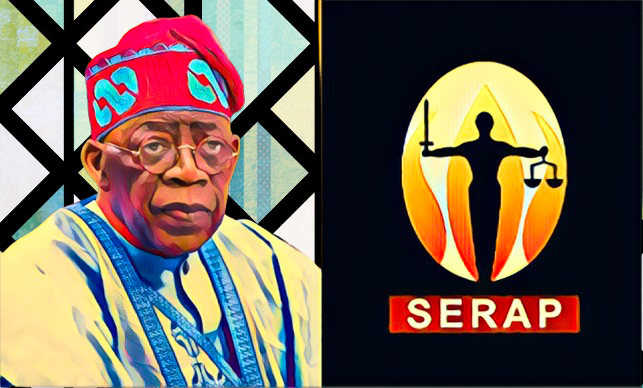The Socio-Economic Rights and Accountability Project (SERAP) has initiated legal action against President Bola Tinubu, citing a lack of investigation into serious allegations surrounding the mismanagement of a $3.4 billion loan obtained from the International Monetary Fund (IMF). This loan, earmarked to bolster Nigeria’s budget and address the COVID-19 pandemic’s impacts, is now reportedly unaccounted for or misappropriated, according to claims detailed in Nigeria’s 2020 annual audited report by the Auditor-General of the Federation.
Filed on the last Friday at the Federal High Court in Abuja, the lawsuit (suit number FHC/ABJ/CS/269/2024) seeks judicial intervention to mandate President Tinubu to undertake a thorough investigation into these allegations. Specifically, SERAP requests an order of mandamus compelling the President to investigate the claims, prosecute any individuals implicated in the mismanagement or diversion of the funds, and ensure the full recovery of the allegedly misused $3.4 billion.
SERAP’s legal challenge is grounded in the belief that addressing these allegations, prosecuting those responsible, and recovering any misappropriated funds are crucial steps toward alleviating Nigeria’s economic crisis and mitigating the country’s debt burden. The organization argues that the Auditor-General’s findings indicate a severe breach of public trust, contravening both the Nigerian Constitution of 1999 (as amended) and the nation’s commitments under international anti-corruption laws, including the UN Convention against Corruption.
The implications of these allegations are profound. SERAP posits that servicing a loan that is potentially missing or misused places an undue burden on Nigerian citizens, who are neither able to benefit from the intended projects nor spared from repaying the loan and its interests. This scenario underscores a critical issue of accountability and governance, highlighting the need for transparent management of public funds.
Furthermore, SERAP’s lawsuit emphasizes the broader implications of unchecked corruption and mismanagement, which not only hinder economic development but also perpetuate poverty and deny Nigerians essential services and opportunities. The legal action also seeks to pressurize the government into implementing the Auditor-General’s recommendations for the recovery of the missing funds and sanctioning those responsible.
This case reflects SERAP’s broader mission to combat corruption and advocate for economic rights in Nigeria. By challenging the government’s handling of the IMF loan, SERAP aims to promote transparency, accountability, and justice, ensuring that public funds are used for their intended purposes and contribute to the public good.
The lawsuit also serves as a reminder of the Nigerian government’s obligations under both domestic law and international conventions to combat corruption and misuse of public funds. It highlights the need for effective measures to prevent, investigate, and prosecute corruption-related offenses, ensuring that public resources are managed responsibly and in the interest of the citizenry.
As the case progresses, it will be closely watched for its potential to set precedents in the fight against corruption in Nigeria and its impact on the governance of public financial resources. The outcome may influence future efforts to ensure accountability and transparency in the management of public funds, particularly those obtained through international loans.
In summary, SERAP’s legal action against President Tinubu represents a critical juncture in Nigeria’s ongoing struggle against corruption and mismanagement of public funds. It underscores the importance of accountability, transparency, and the rule of law in safeguarding the nation’s economic health and the well-being of its citizens. This case could have far-reaching implications for public governance and anti-corruption efforts in Nigeria, potentially shaping the country’s approach to managing public resources and addressing economic challenges.


